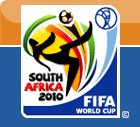
Top stories





ESG & SustainabilityEngen partners with Palesa Pads to provide reusable pads to hundreds of South African school girls
1 hour

More news




Logistics & Transport
Uganda plans new rail link to Tanzania for mineral export boost





















Ireland to lose out on £100million
When Henry apologised for his un-gentlemanly conduct, he could have hardly imagined just how much his action had hurt the Irish economy - and at the same time boosted the French. Said Henry in a tweet on his Twitter profile: "I'm not the referee - but if I hurt someone I'm sorry." According to economists, Henry's handball will mean that Ireland's economy, already mired in the deepest recession in Europe, will lose out on about £100million.
Financial analyst Owen James, of London's Centre for Economics and Business Research, said: "Based on figures on household expenditure and other factors I estimate the Irish economy will lose out to the tune of £100million. If they'd got beyond the group stage, the gain would be more."
Henk Potts, of Barclays Stockbrokers, added: "Retailers will lose out in terms of numbers of sales, and the leisure industry in terms of the numbers going to pubs and bars. Supermarkets would have expected an increase in certain products sold in preparation for matches and bookmakers would expect a lot more activity if Ireland were taking part."
At the same time, Henry's handball is about to usher in a spending spree for the qualifying nation, France. Economists say reaching the world cup extravaganza in South Africa is worth £1billion to a nation the size of France.
Commented Simon Chadwick, professor of sports business strategy at Coventry University: "There will be a ripple-out effect into areas that are directly related, such as sports betting and magazine publishing. But it will ripple out even further to electronics retailers and manufacturers, because people tend to buy more televisions around tournaments too. It's a psychological issue - sporting success makes people feel more optimistic generally and predisposed to buying."
Punters in France will also pour money into kits, sticker albums, tickets and travel, he added.
According to Chris Brady, Dean of BPP Business School, "France will get a boost around the tournament, with extra sales of some goods and people flying in and out of the country. There's also the general feel-good factor to an economy of people just feeling better - better morale."
Says Michael Deacon from the Telegraph: “There's nothing a supermarket chain, for example, loves more than a World Cup, because sales of booze and food go through the roof - and every other business in the land starts shamelessly using the event to market its products (seven months before the 2006 World Cup kicks off, Mars was already running a TV advertising campaign explaining how its chocolate bar will power England to victory).
“Instead, Thierry Henry's cheerful cheating has knocked a nation when it's down. And when people are down, they don't like to spend.”
Irish pundits claim that Henry and FIFA (by refusing to hold a rematch) have denied Ireland the opportunity to go through the same kind of economic rising it experienced during the 1990 and 1994 World Cups. According to Irish football analyst Brendan O'Neill, it is impossible to overstate how important the national team has become for national politics: “In 1990 in particular, when Ireland got to the World Cup quarter-finals, and in 1994, when they got to the final 16, all manner of political and economic hopes were projected on to the team. Then President Mary Robinson's redefinition of Ireland as a state of mind rather than a state became bound up with football.”
Most recently, England's failure to qualify for the Euro 2008 football tournament demonstrated the opportunity cost of missing out on the halo effect of international sporting events. One estimate puts the cost to the economy as high as £2 billion. "A successful run to the 2008 final would have led to a £2bn bonanza for the economy," according to Prof Chadwick.
Chadwick explained that the impact of England not playing in Euro 2008 went deeper than just lower retail sales. "Evidence from previous tournaments also shows that, at another level, worker productivity normally increases as the England national team progresses through major tournaments and the 'feel good factor' takes hold," he said.
According to a spokeswoman for the British Beer and Pub Association, pubs equally missed out in 2008: "If we just look at the first round of a championship like that where you have three matches, we think that equates to between 20 and 25 million extra pints over the three matches."
Provided the hosting team does well, a euphoria induced spending bonanza by South Africans and visitors alike could usher in the much-needed recovery of SA's economy and at the same time push up investor confidence as much as it did in 2002 for hosts Korea - whose credit rating by Moody's Investors Service and Fitch Ratings was upgraded as soon as the final whistle was blown.
